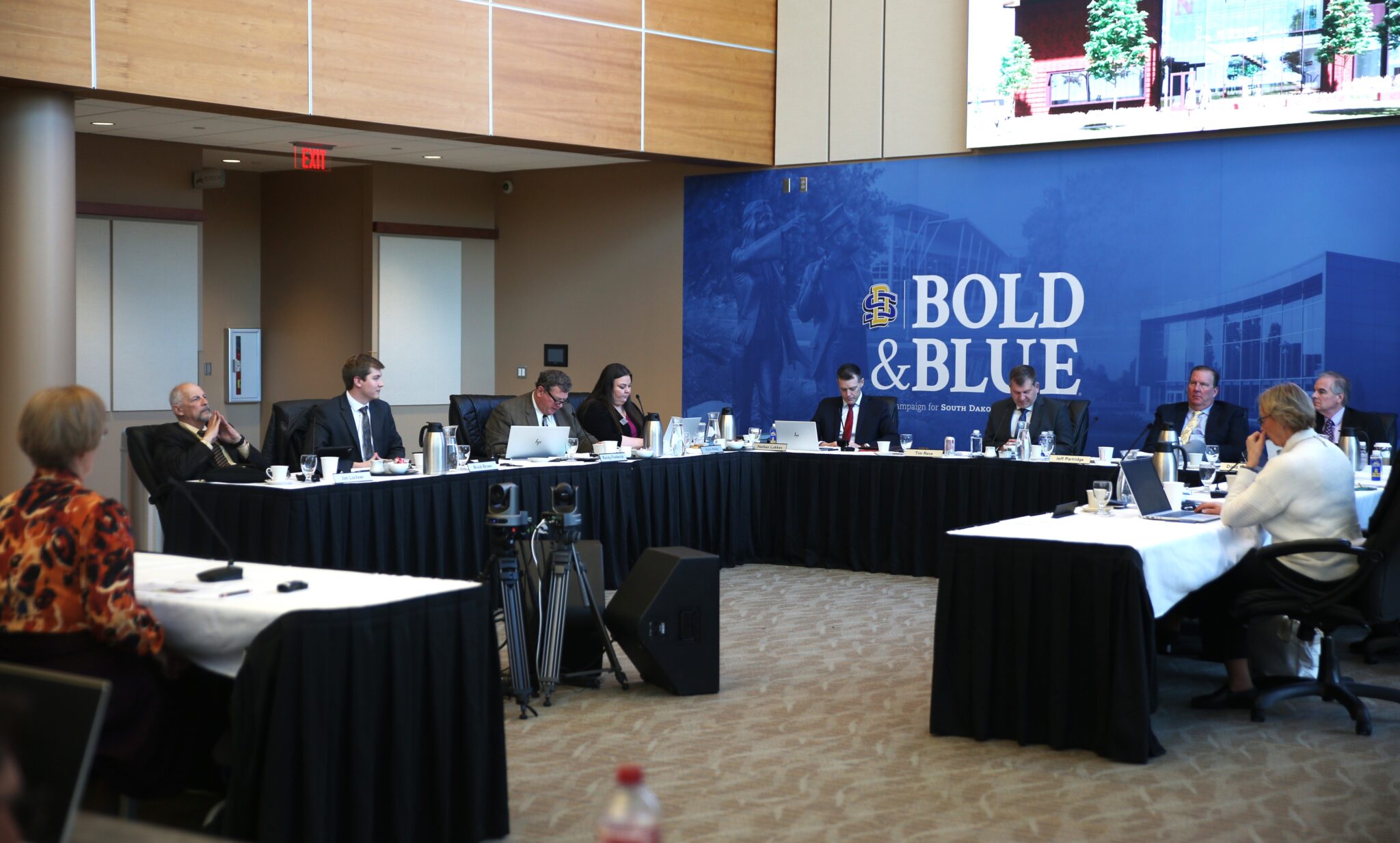
Makenzie Huber/South Dakota Searchlight
BROOKINGS — Four university degrees will be discontinued at South Dakota Board of Regents institutions and two programs will be consolidated, according to a recent program productivity report presented to the board on Thursday.
Those discontinued degrees were flagged due to low enrollment, low graduation and a lack of financial viability. The report has been in effect for years but was updated with recommendations from what came to be known as the Senate Bill 55 task force, which resulted from 2020 legislation that aimed to review “program and administrative efficiencies” at state institutions.
The revised policy mandates annual reviews of programs flagged instead of program reviews every seven years.
With this latest review, the report points toward more decisions to terminate programs or collaborate between universities than in past productivity assessment cycles. A total of 162 academic degrees have been discontinued in the last 12 years.
The policy is working, said Janice Minder, the regents’ vice president for academic policy and planning.
The board’s policy requires program productivity evaluation every three years with a “three-year mid-cycle review.” After analyzing the data, the report is presented before a committee to make final recommendations for the regental board.
“This is the fruit of the work that you see in SB55,” Minder said during the presentation, referencing the 2020 legislation. “… The goal with the annual reviews is to try and avoid or try to enhance that program before it comes up for mid cycle review.”
Among 80 degrees reviewed for productivity during the past year, 21 were flagged and evaluated further. The four degrees to be inactivated include the communications/English program at Black Hills State University in Spearfish, the theatre and government programs at Northern State University in Aberdeen and the atmospheric and environmental science doctoral program at South Dakota Mines in Rapid City.

Five of the programs identified in the review are teacher education programs, which are deemed critical to the state. The programs will be allowed five years to evaluate the workforce needs of the program in South Dakota before they are evaluated again.
The Northern State and Black Hills State Spanish programs will be consolidated and combined with either South Dakota State University in Brookings or the University of South Dakota in Vermillion through online programming, the report indicated.
BHSU President Laurie Nichols told the board Thursday that the university didn’t want to terminate its Spanish degree because she felt students should have access to the foreign language even though the program has had consistently low enrollment for years.
“We can join forces on teaching: We’ll have a lot larger classes and we will do all the things that program productivity should be doing for us,” Nichols said.

SB55 was introduced during the 2020 legislative session by Sen. Ryan Maher, R-Isabel. Maher’s bill originally intended to consolidate the administration of BHSU and South Dakota Mines in the Black Hills, which would in turn help reduce expenditures and tuition costs, he hoped.
Maher told news outlets at the time he was concerned about falling enrollments at some universities and rising costs across the system. He found precedent for statewide reviews in the 1969 Gibb Report, which ultimately led to the closing of a state university in Springfield (now the home of the Mike Durfee State Prison).
The bill morphed into creating a task force, which filed a report of its findings in late 2021.
This August, the Board of Regents requested a report to identify “opportunities and vulnerabilities” of its six universities, including ways to manage and analyze financial and program sustainability. The board said the report “comes in continuation of efficiency actions” such as the earlier task force.
“Once complete, the comprehensive report will summarize the results with clear and actionable recommendations for South Dakota’s public university system,” the board said in a news release. “These measures will focus on improving the financial resilience of the public university system and offering continuing opportunities for students.
